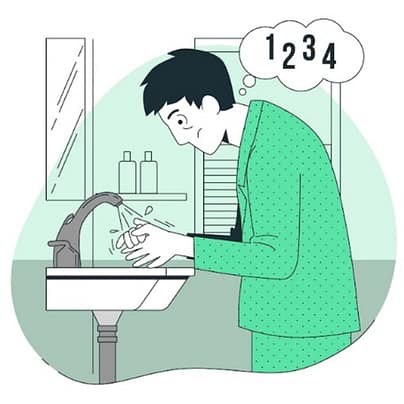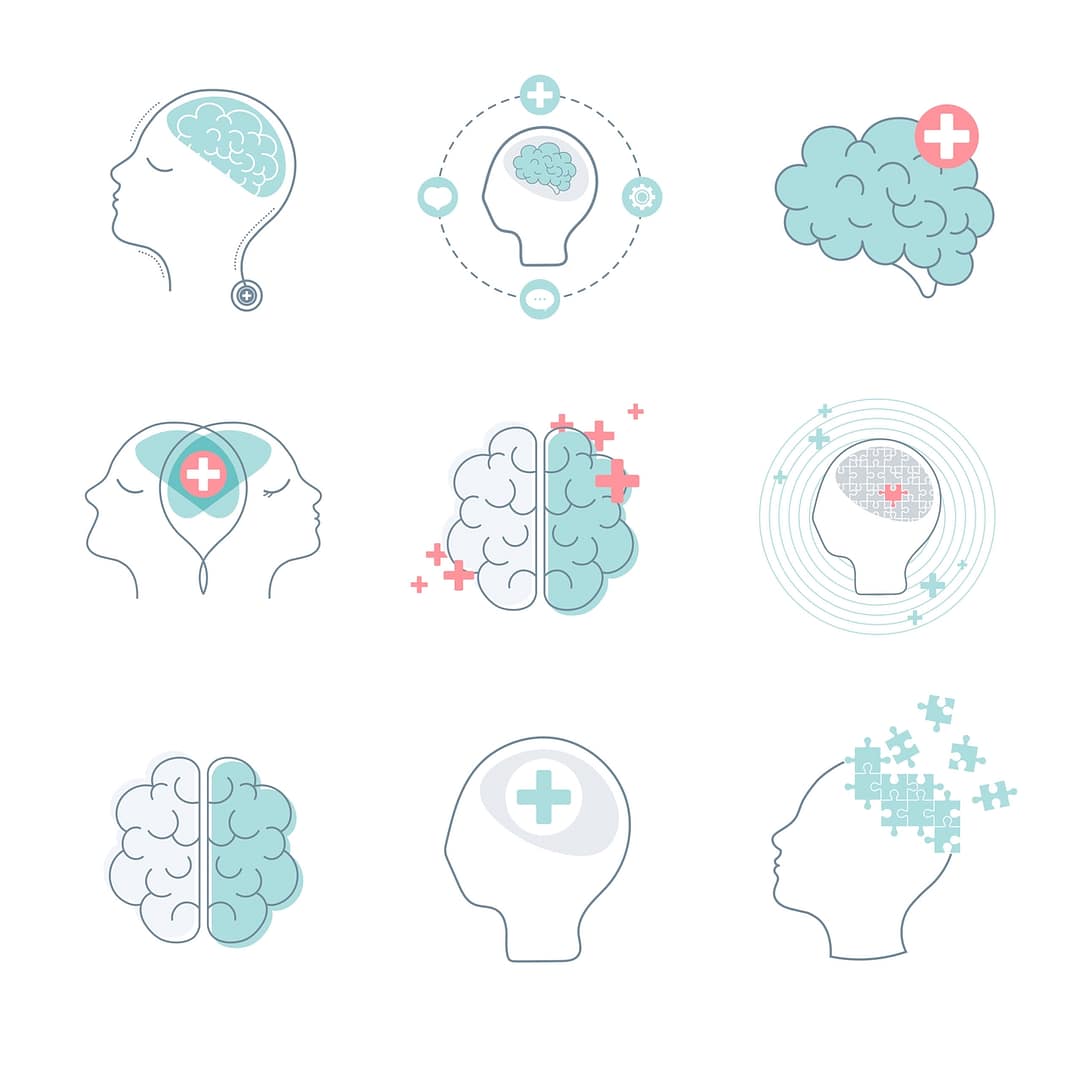OCD vs. Perfectionism: Unveiling the Thin Line
Overview of the Differences Between Perfectionism and OCD
In our search for personal growth, we frequently seek excellence, aiming for the highest possible result in all we do. However, our desire for perfection may turn excessive at times and evolve into a greater complexity. Individuals suffering from OCD frequently find relief in perfectionism OCD treatment choices, such as OCD treatment with TMS in Mumbai at our Restorative and Regenerative Medicine (RNR Medicine) Department.
How to tell the difference between perfectionism and OCD? The purpose of this article is to throw light on the thin line that divides Obsessive-Compulsive Disorder (OCD) from perfectionism. We seek to get a better understanding of the minute yet major distinctions between these two disorders by investigating the underlying causes of these two conditions, their influence on daily life, and the obstacles they offer in diagnosis and treatment.
What is OCD?
Obsessive-Compulsive Disorder, or OCD, is a mental health disease marked by recurring thoughts (obsessions) and compulsive actions (compulsions), both of which have a significant adverse effect on a person’s ability to go about their everyday lives. Compulsions are repeated behaviors performed in an attempt to stop the intrusive and unwelcome thoughts, pictures, or desires that frequently accompany these obsessions and cause extreme anxiety.
Innovative methods, such as our famous TMS treatment by using advanced technology of deep TMS (dTMS) for OCD in Mumbai, should be taken into account when seeking OCD treatment. It’s vital to highlight that people with OCD frequently recognize the irrationality of their ideas and actions but feel unable to change them.
What is Perfectionism?
On the flip side, perfectionism is a psychological trait or inclination defined by acute anxiety about making mistakes and an unrelenting search for flawless performance, however, it is not recognized as a mental condition like OCD. Perfectionists hold themselves to extremely high standards, plan and organize their lives carefully, and strive for perfection in everything they do. Perfectionism can be a motivating factor, but when it’s overused, it can also cause anxiety, stress, and poor health. The difficult balance between desire and well-being is made clear, especially when taking into consideration TMS for OCD in Mumbai as a treatment for distress connected to perfectionism.
-
Obsessions and Compulsions in OCD
The recurring and annoying ideas that OCD sufferers experience as obsessions come in many different forms. These intrusive ideas frequently center on concepts like:
- Contaminating things,
- Danger aversion,
- Unsettling sexual or violent pictures, or
- A desire for symmetry and order.
In these situations, the importance of the treatment for OCD becomes obvious.
Compulsions, on the other hand, are recurrent actions or thoughts carried out to calm the tension brought on by obsessions. Perfectionism OCD examples can consist of behaviors like:
- Excessive hand washing,
- Inspecting,
- Counting, or
- Requesting validation from others frequently.
These obsessions may momentarily ease anxiety, but the effect is temporary. Investigating treatments like TMS and dTMS for OCD in Mumbai can offer insightful information for optimal management.
-
Striving for Excellence in Perfectionism
Perfectionism, while driven by the desire to achieve flawlessness, tends to focus more on personal standards rather than obsessions and compulsions. Some perfectionism OCD examples are:
- Perfectionists engage in meticulous planning and organizing,
- Often setting impossibly high goals for themselves.
- Meticulously reviewing their work for errors.
- They possess an acute attention to detail
- They have a strong aversion to making mistakes.
Striving for excellence becomes a constant pursuit, regardless of the context or the task at hand.
What is the Difference Between OCD and Perfectionism?
How to tell the difference between perfectionism and OCD? While OCD vs perfectionism share some commonalities, it’s essential to recognize the differences that exist between these two phenomena.
-
Nature of Thoughts and Behaviors
Obsessive thoughts are intrusive, distressing, and frequently unreasonable in OCD, while perfectionists are motivated by a desire for perfectionism and high self-imposed standards.
OCD sufferers frequently have a lack of control over their thoughts, which causes significant worry, but perfectionists have a higher sense of control over their thoughts and behaviors, although with heightened anxiety due to their fear of imperfection.
-
Impact on Functioning and Quality of Life
OCD can have a considerable influence on daily life because people could spend a significant amount of time performing rituals and trying to manage their upsetting thoughts. This can cause problems at work, in relationships, and in one’s overall well-being.
While perfectionism can demand a significant amount of time and energy, it does not usually result in the same level of disability in daily functioning as OCD. The availability of services such as the dTMS ( a type of TMS) protocol for OCD in Mumbai emphasizes the need to get expert help to improve the overall quality of life.
Overlapping Features Between OCD and Perfectionism
Is perfectionism a symptom of OCD? OCD and perfectionism may occur together in some people, hindering the diagnostic and therapeutic process. Many people with OCD have perfectionistic tendencies, as the anxiety to make mistakes or fall short of their own expectations can drive obsessions and compulsions. In a similar way, perfectionists may acquire obsessive thoughts and compulsions as a result of their drive for perfection. Addressing these overlapping traits is critical when contemplating OCD treatment with TMS/dTMS in Mumbai. Because of the overlapping perfectionism OCD symptoms, physicians may struggle to find differences between perfectionism and OCD.
-
Co-occurrence of OCD and Perfectionism
Does OCD make you want to be perfect? According to research, people with OCD are more prone than the general population to have perfectionistic inclinations.
In OCD patients, the fear of imperfection appears to get worse, leading to an obsessive desire for cleanliness, order, or precision.
These high expectations and perfectionism OCD examples may increase the anxiety and sadness that come with OCD, making it even more difficult to manage.
-
Challenges in Diagnosis and Treatment
Finding differences between perfectionism and OCD can be difficult because perfectionism OCD symptoms can overlap to some level. This overlap can cause the diagnosis to be delayed or complicated.
Furthermore, the concurrent existence of both illnesses might make treatment difficult because treating perfectionism OCD symptoms alone may not fully ease the suffering caused by perfectionistic inclinations.
In order to promote effective management and better well-being, an integrated approach that addresses both elements is required.
Since perfectionism and OCD have certain parallels, it is important to recognize their differences and the impact that they have on people’s lives. Understanding the distinction between striving for excellence and being overtaken by obsessions and compulsions is critical in offering sufficient assistance and personalized interventions.
The scene has changed for people looking for successful OCD treatment in India, notably in Mumbai. With developments in mental health care, the city now has famous hospitals offering TMS treatment for OCD. So, by clarifying the fine boundary between OCD vs perfectionism, we may improve our understanding, encourage early detection, and develop effective treatment techniques that improve the quality of life for persons impacted by both diseases.
Testing OCD vs Perfectionism: Am I a Perfectionist or Dealing with OCD?
Struggling to discern between an unyielding pursuit of perfection and the signs of OCD? It’s essential to navigate the complexities of OCD vs perfectionism and understand the nuances of being a perfectionist vs OCD for personal development.
- Begin by dissecting your thought patterns-Perfectionists set lofty standards, while OCD sufferers battle intrusive, distressing thoughts and subsequent compulsions.
- Assess your level of control over these thoughts – a hallmark of distinction between a perfectionist and someone with OCD.
- Consider the impact on daily functioning-OCD can disrupt routines and relationships with its time-consuming rituals, unlike perfectionism, which typically doesn’t impair functioning to the same degree.
Acknowledge the intertwined traits and consult our expert for TMS for OCD in Mumbai, unraveling the complexities of OCD vs perfectionism and navigating the terrain of being a perfectionist vs OCD paves the way for personalized interventions and enhanced well-being.
For an eye-opening look at the hidden costs of living with OCD, explore our latest blog post: “The Hidden Costs of Living with OCD: What They Don’t Tell You“
Best Hospital for TMS For OCD In Mumbai
We RNR Medicine Department at Jaslok Hospital, Mumbai’s most trusted name in healthcare for over a century! As one of the oldest tertiary care, multi-specialty Trust hospitals in the country, we take pride in our legacy of excellence. At RNR, we’re delighted to offer the Best Hospital For TMS For OCD In Mumbai as it offers an advanced form of TMS in the form of dTMS. Our state-of-the-art facilities and a team of compassionate experts are dedicated to helping you find relief from OCD through innovative TMS treatments. Choose the RNR Medicine Department for cutting-edge care, where your well-being is our top priority. Experience healthcare with a legacy of trust – experience RNR.






















 Therapy is typically recommended as part of a comprehensive
Therapy is typically recommended as part of a comprehensive